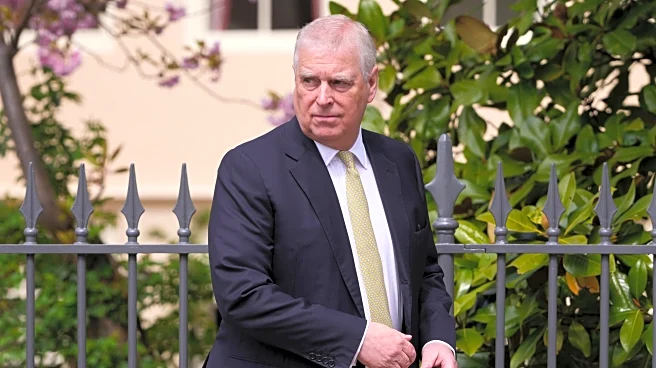Rapid Read • 9 min read
The United States played a significant role in the collapse of landmark plastic treaty talks in Geneva, opposing key production limits that many other nations viewed as essential to addressing plastic pollution. The talks, which lasted 11 days, aimed to establish a global treaty to curb plastic pollution but ended in an impasse due to conflicting positions. The U.S., under President Trump, opposed explicit limits on plastic production and potential restrictions on plastic additives, aligning with countries like Saudi Arabia, Kuwait, Iran, and Russia. This stance contrasted with the positions of many African nations, Caribbean and Pacific islands, and the European Union, who advocated for production cuts. The negotiations exposed deep divides over whether to focus on waste management or reduce plastic production.
AD
The U.S. opposition to production limits highlights the challenges in reaching a consensus on global environmental issues. As the world's second-largest plastics producer, the U.S. has significant economic interests in maintaining current production levels, which are closely tied to fossil fuels. The failure to reach an agreement underscores the influence of the petrochemical industry in shaping policy, as the U.S. position echoed arguments from industry associations. The outcome of these talks could impact efforts to address plastic pollution, which poses significant environmental and health risks. The projected increase in plastic production could exacerbate pollution, making it crucial to find a global solution.
The future of the plastic treaty negotiations remains uncertain, with the possibility of a future negotiating session. Countries have been trying for three years to reach a treaty, and the work has been fraught with challenges. The U.S. position, shaped by President Trump's zero-sum negotiating approach, has contributed to the impasse. Environmental groups and some countries continue to advocate for production limits, emphasizing the need for a comprehensive approach to address plastic pollution. The negotiations may resume, but the path forward will require overcoming entrenched divides and finding common ground among diverse interests.
The negotiations highlight the broader economic implications of plastic production, which is a crucial growth market for fossil fuel companies. Plastics play a critical role in various sectors, including food packaging, medical devices, and aerospace, making it challenging to impose production limits. The strong presence of industry lobbyists at the talks raises ethical concerns about the influence of corporate interests in shaping environmental policy. The failure to reach an agreement also reflects the complexities of international diplomacy, where consensus-based systems struggle to address pressing global issues. The negotiations underscore the need for cooperation and compromise to find effective solutions to environmental challenges.
AD
More Stories You Might Enjoy











